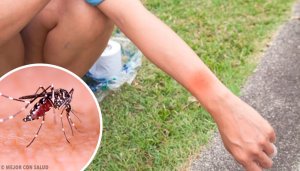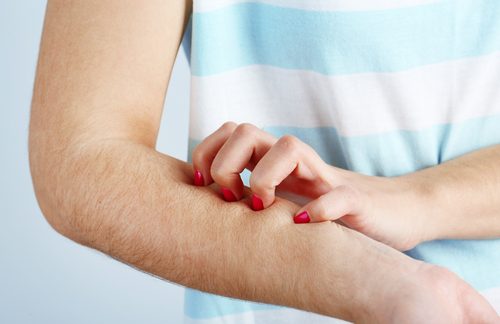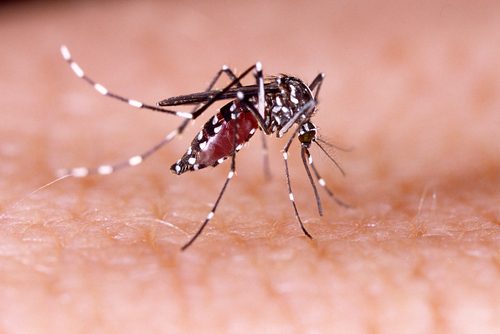What Happens when You Get a Mosquito Bite?

Although something as thoughtless and simple as scratching a mosquito bite can seem harmless, it might actually have more consequences than you realize.
According to entomology experts at the University of Florida, a mosquito bite is the result of when a female mosquito probes the surface of your skin with her proboscis and locates a capillary bed near the surface. When the proboscis penetrates the skin, the mosquito releases saliva underneath.
Remember that a mosquito’s saliva contains certain proteins that your immune system will perceive as foreign substances. Therefore, your body will respond aggressively and immediately at the site of the bite, which you can see when it becomes inflamed and starts to itch.
This normally occurs after a day or two of the bite, but in addition to the itching you can also have an allergic reaction or contract an infection. To find out if your mosquito bite might lead to something else, consider the following:
- The stinging feeling occurs when your skin releases a substance known as a histamine. This helps fight any potentially harmless substances – such as mosquito saliva.
- Histamine production causes the blood vessels around the bite to swell, causing a bump to form. It also irritates the nerves and triggers the itch.
When is it something more than just a mosquito bite?

- Fatigue
- Fever
- Malaise
- Headaches
- Rash
- General discomfort
- Inflammation of the throat
Visit this article: How to reduce a fever naturally
Why do mosquitoes bite people?

The signal won’t guide a mosquito directly to you. However, it will make it easier for it to locate potential sources of food. The mosquito will follow the scent of carbon dioxide against the wind to identify the origin. It’s always attentive while in flight.
As it approaches, it evaluates all possible sources of food along the way. If it does not detect further clues that identify you as a human, it will continue the search until it is successful.
A mosquito can detect a person from about 30 feet away. However, it’s only within a few feet that it can sense your body heat. That’s when certain other factors come into play, such as humidity and smell.
Next, the mosquito searches for a place to land on the surface of your body, such as the feet or ankles. When it’s just about an inch from your skin, it can be certain that you’re a human being and it bites.
We recommend you read: 4 mosquito repellents
Methods of prevention

A natural repellent like lemon eucalyptus oil can also work. It’s sold under the name citridiol, but its use is not recommended for children under the age of three.
Another good natural solution to fight the annoying mosquito is a combination of ingredients. If you add 5% DEET (N-Diethyl-meta-toluamide) to vanilla or citronella oil you increase the life of your repellent. Plus, it’s also better for your skin.
All cited sources were thoroughly reviewed by our team to ensure their quality, reliability, currency, and validity. The bibliography of this article was considered reliable and of academic or scientific accuracy.
- Kulthanan K, Wongkamchai S, Triwongwaranat D. Mosquito allergy: clinical features and natural course.
J Dermatol 2010;37:1025-1031. - Peng Z, Simons FER. Advances in mosquito allergy. Curr Opin Allergy Clin Immunol 2007;7:350-354.
- Díaz-González SN, Arias-Cruz A, Sedó-Mejía G, RojasLozano A y col. Prevalencia de reacciones secundarias
por picadura del mosquito Aedes aegypti en el Centro Regional de Alergia e Inmunología Clínica del Hospital Universitario, Monterrey, Nuevo León. Alerg México 2010;57:37-43.
This text is provided for informational purposes only and does not replace consultation with a professional. If in doubt, consult your specialist.








